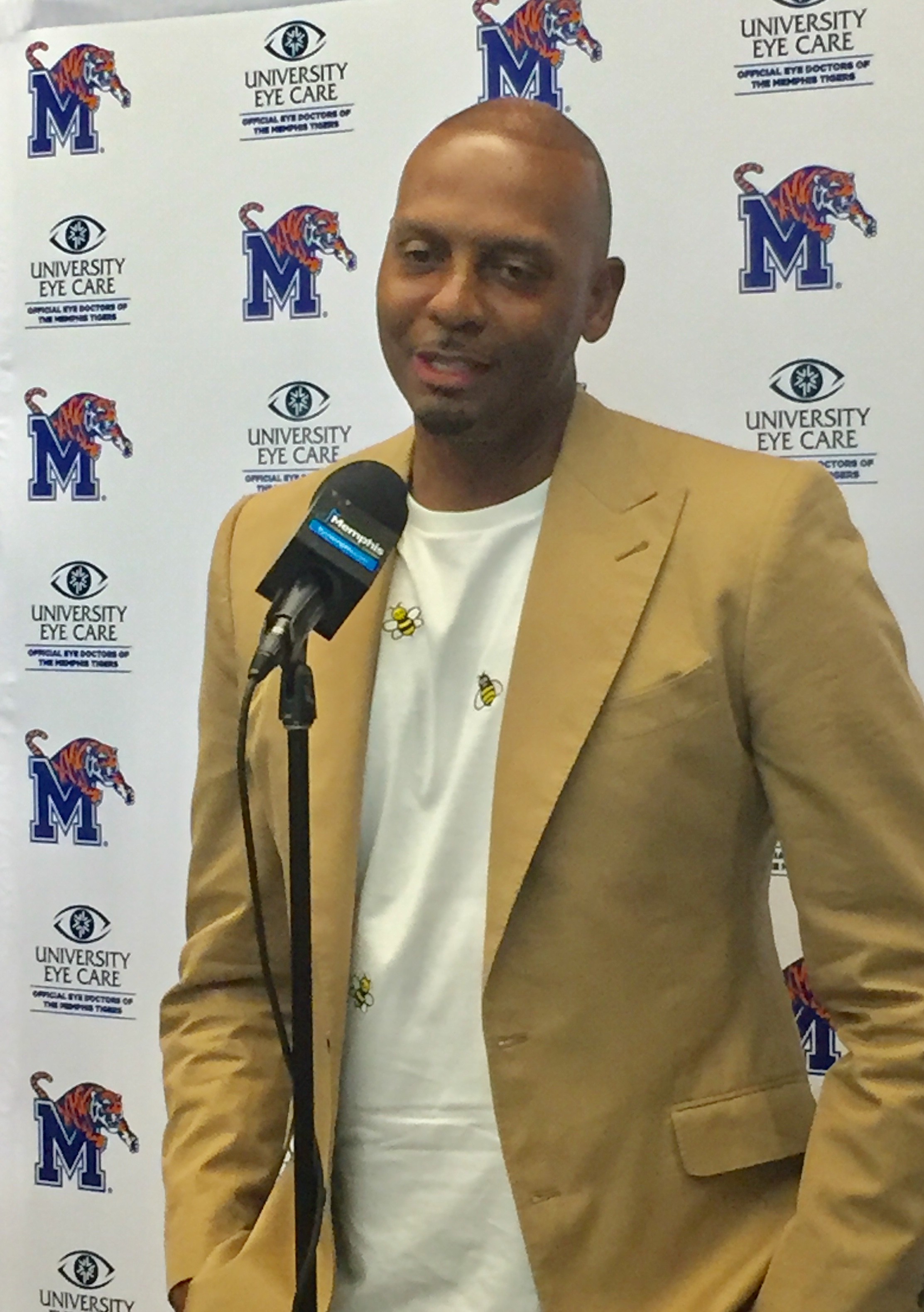I’m growing rather fluent in Pennyspeak. If you’ve been listening to Memphis Tiger basketball coach Penny Hardaway since he took over the program 15 months ago, you’re likely speaking the language, too. It’s a refreshing alternative to “coachspeak,” the more typical say-one-thing-but-mean-another form of phrasing we hear every winter from coaches too timid to intimidate or too skittish to scare.
Having secured the top-ranked recruiting class in the nation after his first season as a college coach, Hardaway met with a group of media types last month to discuss the extraordinary group of talent on its way to Memphis. You may have heard what he said, but let’s go a little further: What did Hardaway want us to hear?

“What we’ve been able to do this summer is amazing. It’s a blessing. I wanted this so badly. To do this in such a short period of time . . . I thank God for the opportunity.”
Hardaway is grateful, indeed, to be making a difference, you might say, in his hometown, and at his alma mater. He also knows he’s very good at this recruiting game. God didn’t convince the country’s top recruit (James Wiseman) to stay home and play for the Tigers, and He didn’t persuade another five-star recruit (Precious Achiuwa) to play a supporting role to Wiseman. That was the man in the fancy suit and custom sneakers.
“They’re saying they’re gonna sacrifice — for one another — so they can all achieve the bigger goal.”
This is going to be micro-analyzed until Opening Night in November, and rightfully so: With only one basketball and 200 player-minutes per game, can seven freshmen stars co-exist? Don’t discount the role social media plays in the gathering of a modern college basketball team, the connectedness that can be achieved — at least in the minds of young men — before a team first assembles on a court. Wiseman, Achiuwa, Lester Quinones, and Boogie Ellis were sharing thoughts and views in a group chat long before the commitment letters were signed. Before they agreed to become teammates and play for Hardaway, they had to agree on the idea of being teammates, sharing a uniform, and yes, sacrificing some minutes on the floor for the greater good, the bigger goal. And do you wonder if these players recognized the fan support, the desire in Memphis to see this super-class become reality? Well, they did.
“This is Memphis. We don’t bluff. We want all the smoke. We want everything to be about Memphis. That’s what this city wants. We want to win a national championship.”
Forget incremental program-building under Hardaway. The Tigers haven’t won so much as a conference championship since the 2012-13 season. It’s now been five years without an NCAA tournament appearance for the Tiger program. But Hardaway is about now. He’d be a great spokesman for the mindfulness movement, the notion that scars of the past or possibilities of the future only interfere with being the best you can be right now. Make the next breath you take your most important. Make your next decision one of impact. And shy away from nothing. Those who lower the bar of expectations tend to stumble over that lowered bar.
“I’m different. We’re different. We’re an NBA staff . . . in college.”
There’s an arrogance to this, no question. The fact is, Hardaway is not coaching an NBA team. His assistants aren’t sharpening the skills of NBA players. But to win in the world of college basketball on the scale Hardaway wants to win, you better sell your program as a connector to The League. We may soon see the end of the “one-and-done” absurdity, a new era in which high school superstars can leap straight to the NBA if they choose (and are chosen). But there are only 60 selections made each year in the NBA draft. Do the math on that, with 347 Division I college teams and thousands of high school programs. It’s still hard to reach the NBA. Elite college coaches must establish themselves as conduits.
“It’s been like daydreaming, just thinking about the matchups you can put on the floor.”
Get used to the words positionless basketball. They may as well have been copyrighted by the Golden State Warriors. Ellis will be the Tigers’ point guard next season, unless the ball is in the hands of Quinones, or Tyler Harris, or Alex Lomax. Malcolm Dandridge may look like a power forward in warm-ups, but what do we call him when he’s the largest Tiger on the floor, when “small ball” becomes the mode of attack? And call James Wiseman a “center” if you want to sound like it’s 1995. Hardaway has so many options in distributing those 200 player-minutes on game night. Expect his rotation — to say nothing of his starting five — to be as fluid as the body of water rolling south just a few blocks west of his team’s arena. Rivers were made for daydreaming, right?